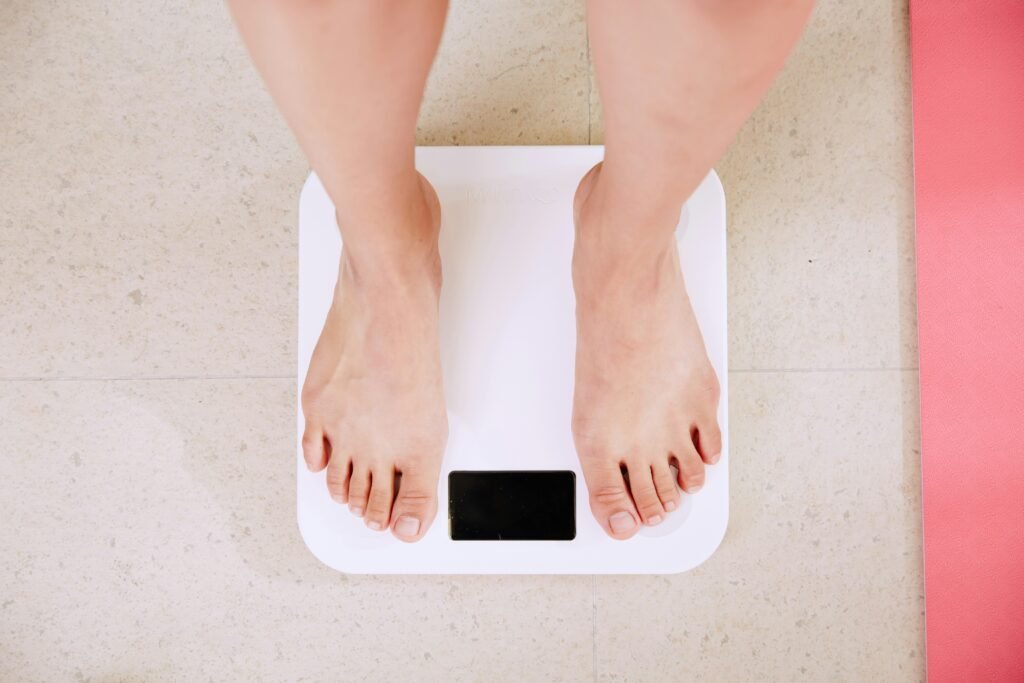Before focusing in loosing weight at first you need to understand how much weight should be considered as overweight! You can find BMI (Body Mass Index) calculator in any apps or by google search. Calculate your weight according to your height. Than you will come to know how much weight you need to loose to stay fit and healthy.
Losing weight is a common goal for many people, but achieving it requires a balanced approach that includes healthy eating, regular physical activity, and lifestyle changes. Here’s a comprehensive guide on how to reduce weight effectively and sustainably.

1. Set Realistic Goals To Reduce Overweight
Setting realistic and attainable weight loss goals is crucial for long-term success. Instead of aiming for rapid weight loss, focus on losing 1-2 pounds per week. This rate is generally considered safe and sustainable.
If you are aiming for rapid weight loss every week rather than 1-2 pounds your body and mind will not be able to bear that sudden change of your body structure. Than your body function can be collapsed and you will become sick!
2. Balanced Diet
A healthy diet is the cornerstone of weight loss. Here are some key principles:
a. Always remember one most important thing- if you do much more exercise and your calorie intake is more than your calorie burn than you will not loose any weight! So focus on how much calorie you are burning and how much you are taking everyday!
b. Eat Healthy Foods: Take more unprocessed foods like fruits, vegetables, lean proteins, whole grains, and healthy fats. These foods are nutrient-dense, low calorie and can help you feel fuller for longer.
c. Portion Control: Pay attention to portion sizes. Eating smaller portions can help reduce calorie intake without feeling deprived.
d. Limit Sugar and Refined Carbs: Reduce the intake of sugary drinks, candies, and refined carbohydrates like white bread ,rice and pasta. These can cause rapid spikes in blood sugar and contribute to weight gain.
e. Stay Hydrated: Drinking plenty of water can help control hunger and prevent overeating. Sometimes, thirst is mistaken for hunger.

3. Regular Physical Activity
Incorporating regular exercise into your routine is essential for weight loss and overall health. Aim for a mix of:
a. Cardiovascular Exercise: Activities like walking, running, cycling, and swimming can help burn calories and improve cardiovascular health.
b. Strength Training: Lifting weights or doing body-weight exercises like push-ups and squats can build muscle. Muscle tissue burns more calories at rest than fat tissue, which can help with weight loss.
c. Flexibility and Balance: Activities like yoga and Pilates improve flexibility, reduce stress, and enhance overall well-being.

–
4. Behavioral Changes
Weight loss is not just about diet and exercise; it also involves changing your habits and mindset:
a. Mindful Eating: Pay attention to what and when you eat. Avoid distractions like TV or smartphones while eating, and savor each bite. When you are focusing fully on what you are eating your body and mind will start working together and your body muscle will become ready to take what it actually need!
b. Sleep Well: Lack of sleep can disrupt hormones that regulate hunger and appetite, leading to weight gain. Aim for 7-9 hours of quality sleep per night. When you are sleeping your body metabolism works fully functioning.
c. Stress Management: Chronic stress can lead to emotional eating and weight gain. Practice stress-reducing techniques such as meditation, deep breathing, or hobbies you enjoy.
5. Monitor Progress
Keeping track of your progress can help you stay motivated:
a. Keep a Food Diary: Recording what you eat can help identify patterns and areas for improvement.
b. Regular Weigh-Ins: Weigh yourself regularly, but not obsessively. Once a week is often enough to track progress without becoming discouraged by daily fluctuations.
c. Celebrate Milestones: Recognize and celebrate your achievements, no matter how small. This can boost your motivation and reinforce positive behaviors.

6. Seek Support
Don’t hesitate to seek support from friends, family, or professionals:
a. Social Support: Sharing your goals with friends and family can provide encouragement and accountability.
b. Professional Help: Consider consulting a dietitian, personal trainer, or therapist if you need personalized guidance or support.

7. Be Patient and Persistent
Weight loss is a journey that requires time, patience, and persistence. There will be ups and downs, but maintaining a positive attitude and staying committed to your goals will help you achieve lasting results.

Reducing weight is about making sustainable lifestyle changes rather than following quick fixes or fad diets. By setting realistic goals, eating a balanced diet, staying active, changing behaviors, monitoring progress, seeking support, and being patient, you can achieve and maintain a healthy weight. Remember, the journey is as important as the destination, so embrace each step towards a healthier you.




Pingback: Why Overweight Causes Joint Pain? - Fat Burn Faster 2x
Pingback: Why Being Overweight Causes Snoring - Fat Burn Faster 2x
Pingback: The Power of Almonds: Your Guide to a Healthier Lifestyle - Fat Burn Faster 2x
Pingback: Why Overweight Causes Diabetes - Fat Burn Faster 2x